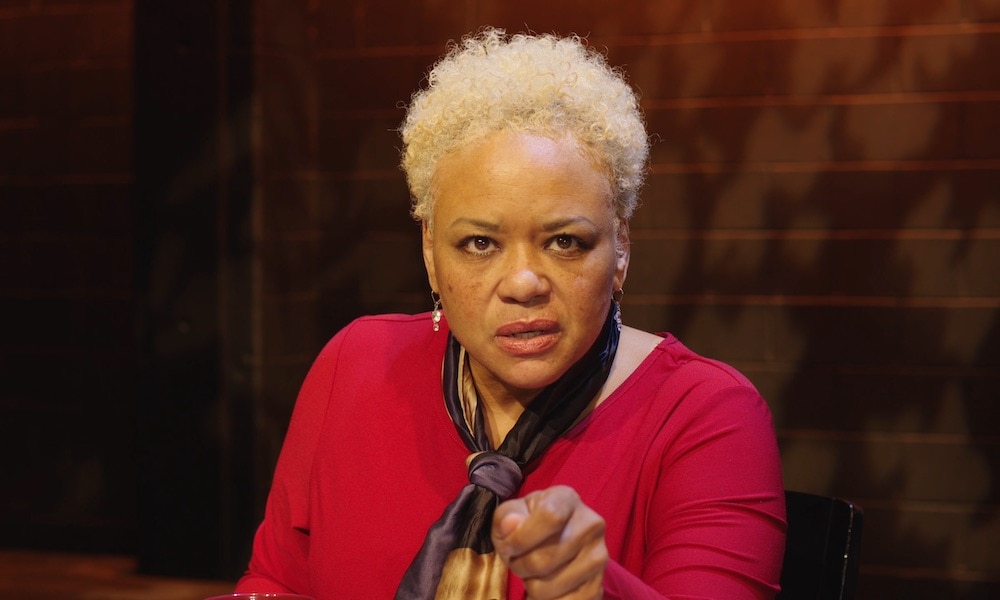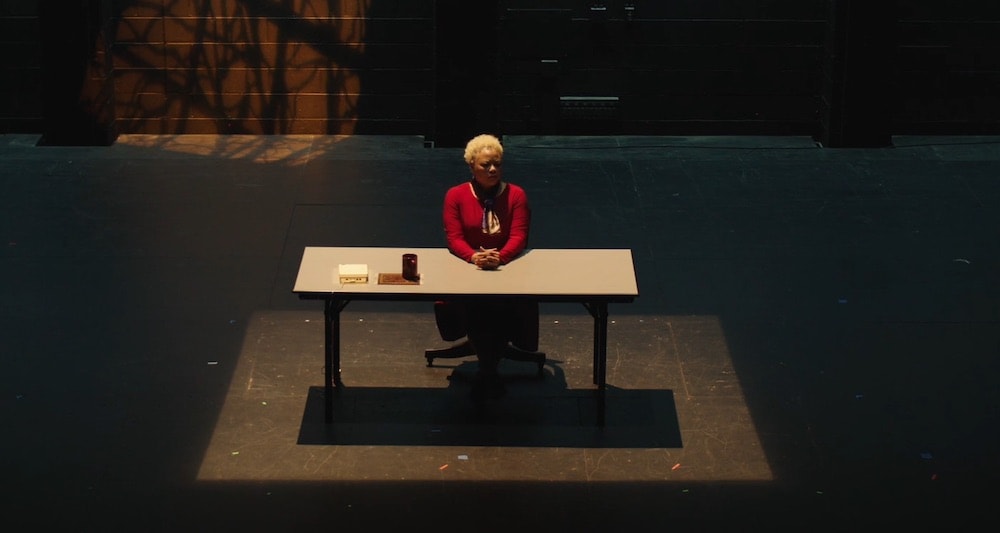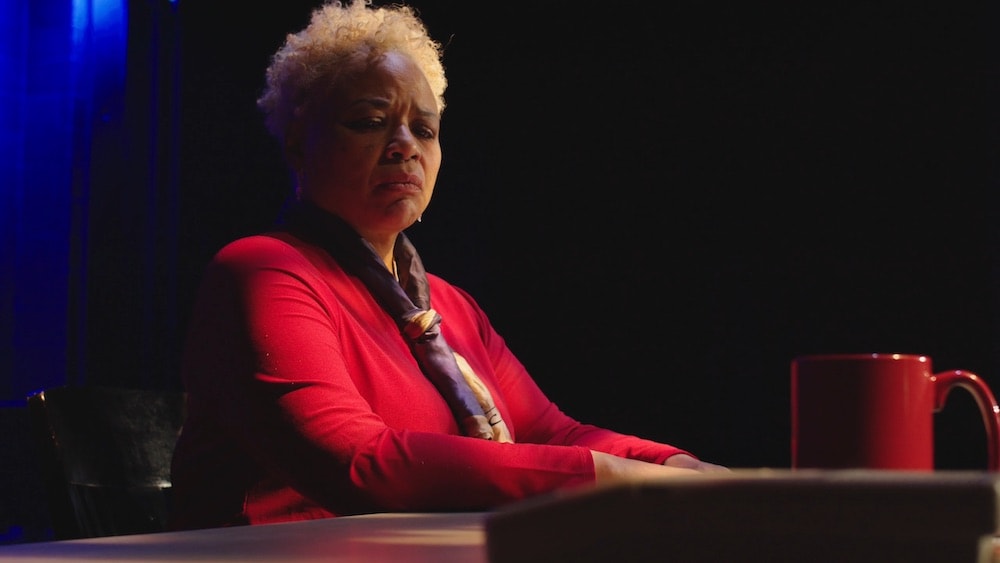Round House Theatre, in association with McCarter Theater Center, concludes its festival of works by celebrated playwright Adrienne Kennedy with the world premiere of Etta and Ella on the Upper West Side. Fans of Kennedy’s daring work will find much to admire in this intense and surreal mash-up of reality and fantasy set in the shadows of Manhattan. Those who are new to Kennedy’s dramas will discover a richly experimental world of time-bending narratives, soul-searching dreams, and vivid nightmares wrapped in astonishing eloquence.

Etta and Ella Harrison were prominent New York writers and teachers whose heyday has long since passed. Elegantly clothed and coiffed, the sisters once glided among the city’s cultural intelligentsia. They wrote about their family, including dueling stories about their mute brother. Occasionally they snatched each other’s personal narratives for their own literary ends. In pursuit of individual success, their intense rivalry escalated to a wild crescendo, causing the sisters’ careers to plummet into madness and mayhem. Etta now lives alone in on the third floor of a brownstone strewn with books and fine china. Occasionally, she wanders through New York bookstores in faded evening gowns and sneakers, hoping for a great academic comeback while conjuring murder.
The sisters share some of Kennedy’s own biographical details. They grew up in Ohio and landed teaching positions in Berkeley, Columbus, and New Haven. Etta, like Kennedy, spent time in Ghana, where her husband was conducting research. Kennedy also splices in pointed references to her previous plays, including the tragic Ohio State Murders. The sisters fought over the literary rights to “Suzanne” — Kennedy’s long-time alter ego and the central character of many of her works, including Ohio State Murders and Sleep Deprivation Chamber, both featured in the Festival.

In these previous plays, Suzanne is victimized by lurid instances of racial injustice. Yet despite the many threads that Kennedy weaves between the three works, Ella and Etta on the Upper West Side only whispers about race. Etta’s beauty is compared to that of African American actress Ellen Holly, but the sisters led a rarefied existence in New York’s academic world, where they taught, spoke at prestigious conferences, enjoyed membership in the Vanishing Literary Society, and attended the theater, seemingly unhindered by the specific prejudices experienced by many of Kennedy’s other characters.
A single actor — the commanding Caroline Clay — recounts the story in one act. She animates both the sisters and Etta’s concerned neighbor, an African American scholar of gospel music who recalls the sisters’ jealousies and offers Etta protection. Seated at a desk on an empty stage, with the barest of props, Clay summons Kennedy’s enormous power to tell a story that is grounded in minute detail yet soars into pathos, irony, hauteur, and fear. She is a stunning match for Kennedy’s galvanizing poetry and prose.
Directed by Timothy Douglas and supported by Sherrice Mojgani’s sensitive lighting, Etta and Ella on the Upper West Side offers another daring demonstration of Kennedy’s rich arsenal of dramatic tools. Spare phrases and numerals occasionally appear on the screen, effectively separating one “beat” from the next and allowing the audience to draw a breath.

In the excellent series of panel discussions that accompany this festival (also available on the Round House YouTube channel), actors, playwrights, and directors who have worked with Kennedy express their deepest appreciation for her ongoing legacy as a writer and teacher. Let’s hope that this festival will encourage more opportunities to sample Kennedy’s rich canon in the future.
Running time: 36 minutes.
The Work of Adrienne Kennedy: Inspiration and Influence features four plays, released between November 2020 and January 2021. Each play will be available to view on demand until April 30, 2021. Tickets can be purchased by calling 240-644-1100 or ordering online at RoundHouseTheatre.org
SEE:
Adrienne Kennedy festival replays a painful drama from her own life
A Black son’s assault by police, powerfully told in the Adrienne Kennedy festival review by Amy Kotkin
Adrienne Kennedy festival opens with haunting letters between lovers review by Amy Kotkin
Round House begins monthlong tribute to living legend Adrienne Kennedy




